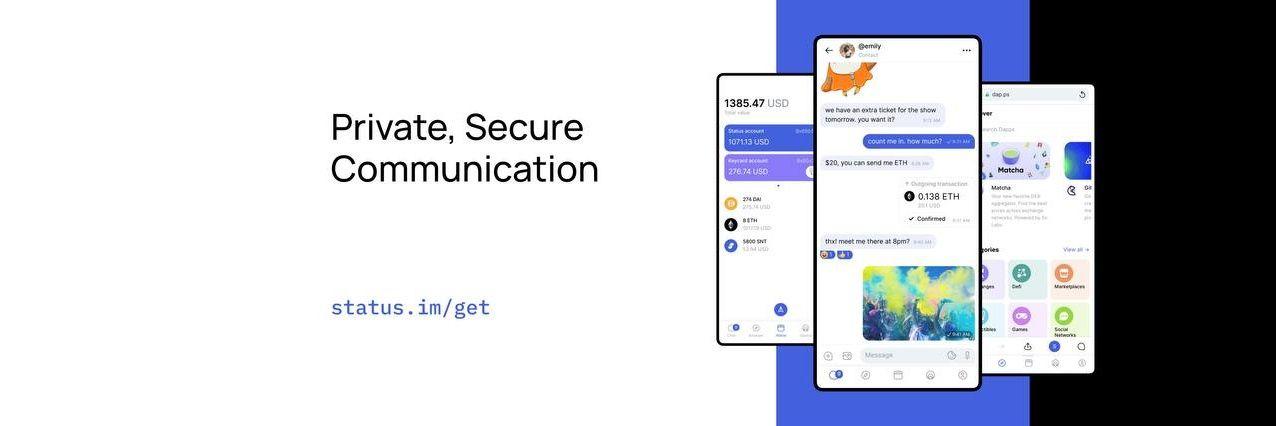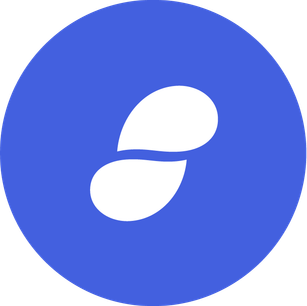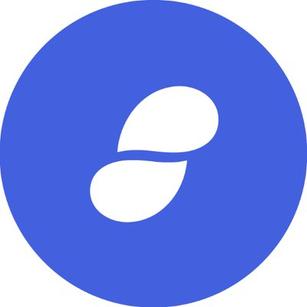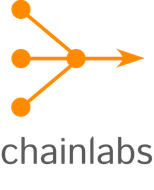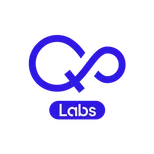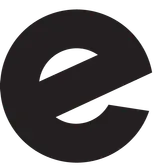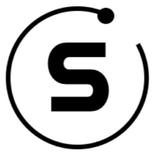Status Jobs
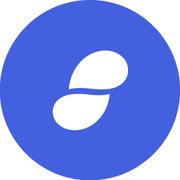
Status is building the tools and infrastructure for the advancement of a secure, private, and open web3.
With the high level goals of preserving the right to privacy, mitigating the risk of censorship, and promoting economic trade in a transparent, open manner, Status is building a community where anyone is welcome to join and contribute.
As an organization, Status seeks to push the web3 ecosystem forward through research, creation of developer tools, and support of the open source community.
As a product, Status is an open source, Ethereum-based app that gives users the power to chat, transact, and access a revolutionary world of DApps on the decentralized web. But Status is also building foundational infrastructure for the whole Ethereum ecosystem, including the Nimbus ETH 1.0 and 2.0 clients, the Keycard hardware wallet, and the Waku messaging protocol (a continuation of Whisper).
As a team, Status has been completely distributed since inception. Our team is currently 100+ core contributors strong, and welcomes a growing number of community members from all walks of life, scattered all around the globe.
We care deeply about open source, and our organizational structure has minimal hierarchy and no fixed work hours. We believe in working with a high degree of autonomy while supporting the organization's priorities.
Open roles at Status
Status doesn't have live jobs at the moment.
Hiring for Status? Post a job
Company Culture
Founding story
Our co-founders, Jarrad and Carl, had previously worked together on a software venture and developed an interest in crypto – specifically Ethereum. Soon they identified an opportunity to build an open source messaging platform to help on-ramp decentralized apps to the Ethereum network. Thereafter, a whitepaper outlined their vision. The pair now lead a small dedicated team to realize their ambition.
Why chat is at the core of Status
There are multiple dApp browsers. For many, wallet is seen as the first class citizen and the dApp browser comes second. For Status, chat seems to be the first priority. Why?
Ultimately, the Status Network is a collection of projects focused on providing web3 tools and infrastructure. It’s a crazy ambitious project - essentially rebuilding the entire web. The Status app (and the chat functionality) is the showcase of the technology and infrastructure we’re building.
We have endeavored to become an open source community focused on building what people want. Many see Status as an opportunity to use Ethereum to allow private, secure communication. For others, it’s about general internet security. Whether it’s a friend or a family member, you’re able to communicate with utmost privacy. We use Status all day, every day to communicate with colleagues throughout the world. It is how we interact as a group.
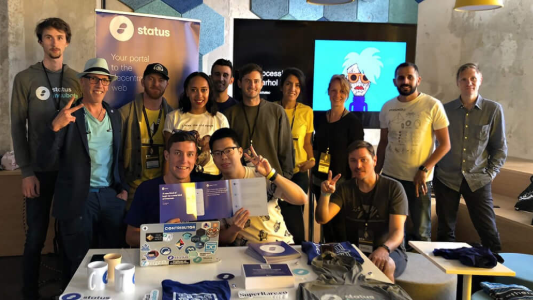
Team
What’s the average size of your teams?
Our teams operate in Swarms and typically comprise 4-7 people. We have a core team focused on building the Status app and other swarms writing features and working on research. For example, there is a Sticker Market Swarm comprising four contributors working to implement that feature. Teams are a mix of a product manager, designers and engineers. Outside of the core development, we have a more traditional structure – marketing team, finance team, people operations and operations team.
Company size
We were up to 90 people in December 2018. With the market volatility and crash in December, we had to reduce staff. Now we’re at 60-65 and that feels like a good amount for us. We’re trying to be financially responsible and ensure that we have enough funds to complete the project.
What’s the average age of your employees?
The quick answer is, we don’t know! We don’t track that information unless we are legally required to do so. But my guess is mid-20s to mid-40s, which is fairly standard for a tech company. Again, our focus in building Status is on privacy and security and we apply that internally too. We don’t collect information about the team that we are not legally required to. Unless they want to tell us. :)
100% Remote
We don’t have offices and have no plans to lease any: we are entirely remote. Like most organizations, we employ people in different countries. Some choose to work from co-working spaces and we provide a small monthly allowance of about 250 euros to enable them to rent a workspace if desired. We also have people who travel the world – either visiting friends or renting Airbnbs in different countries. They see the globe, work on their laptops by day and have fun by night and on weekends.
How we manage a team of 65 remote staff
Our teams self-organize. Whenever everyone joins, they join for a specific role and we work in swarmsso everyone has a clear idea of their role. We tend to work asynchronously so we don’t have a lot of meetings. We work hard to ensure that all information is accessible to everyone. We take many notes from our meetings, make recordings and stream town halls on YouTube. We also publish decisions on our Discuss forum.
Status chat helps solve many common challenges: the fact that the decision-maker is rarely sat beside you. Or that you miss informational context by being in a different country. We strive to ensure that anyone in the project can access the same information at the same speed. Of course, there are some logistical challenges re: time zones and locations. We compensate by scheduling town halls, which tend to be in the middle of the day in Europe (i.e. quite late for Asia and early for America), every two weeks. By doing so, we’re reducing the number of early mornings or late evenings people are required to do.
In terms of locations, we are pretty evenly split. We have a good concentration of people in Europe, including a few in Berlin, London and Paris. We have people in Asia and America. Mostly, collaboration across teams works very well.
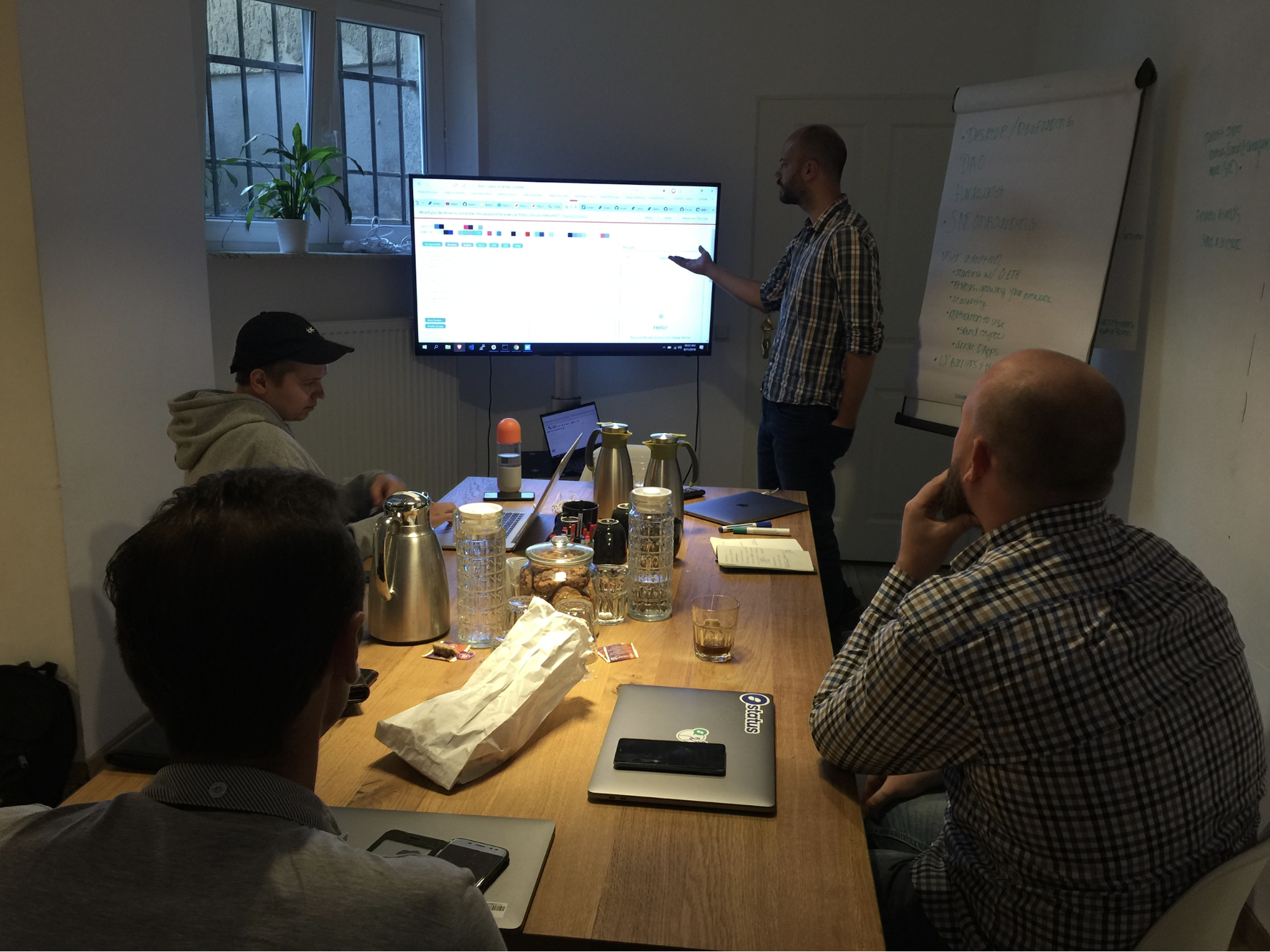
Work process. Fewer calls, no meetings.
Most teams have a weekly call, in essence a summary of ongoing work. As an organization, we do a town hall every two weeks. One of the founders summarizes what’s going on and lists key priorities. Each team then updates on progress they’ve made, problems encountered and shows some demos. In general, we keep meetings to a minimum.
Tools & information sharing
Do you use any internal tools that are private and are not open to the public?
Recently we started using the project management tool Wrike. It’s incredibly useful for us as we’ve grown to be more complex. One challenge to remote working is understanding what everyone is working on, so Wrike gives a clear view of what features we’re building, what projects are underway, who’s working on them and the rough timelines.
Status. No Slack
We used Slack up until November 2018. While we loved it for the first few months, when building the desktop version of Status we realized we could use it to achieve the same results. So we turned off Slack when Status launched. In the early days, it was painful because Slack is a highly polished product, with hundreds of engineers behind it. But switching has helped us better understand and improve the Status desktop experience.
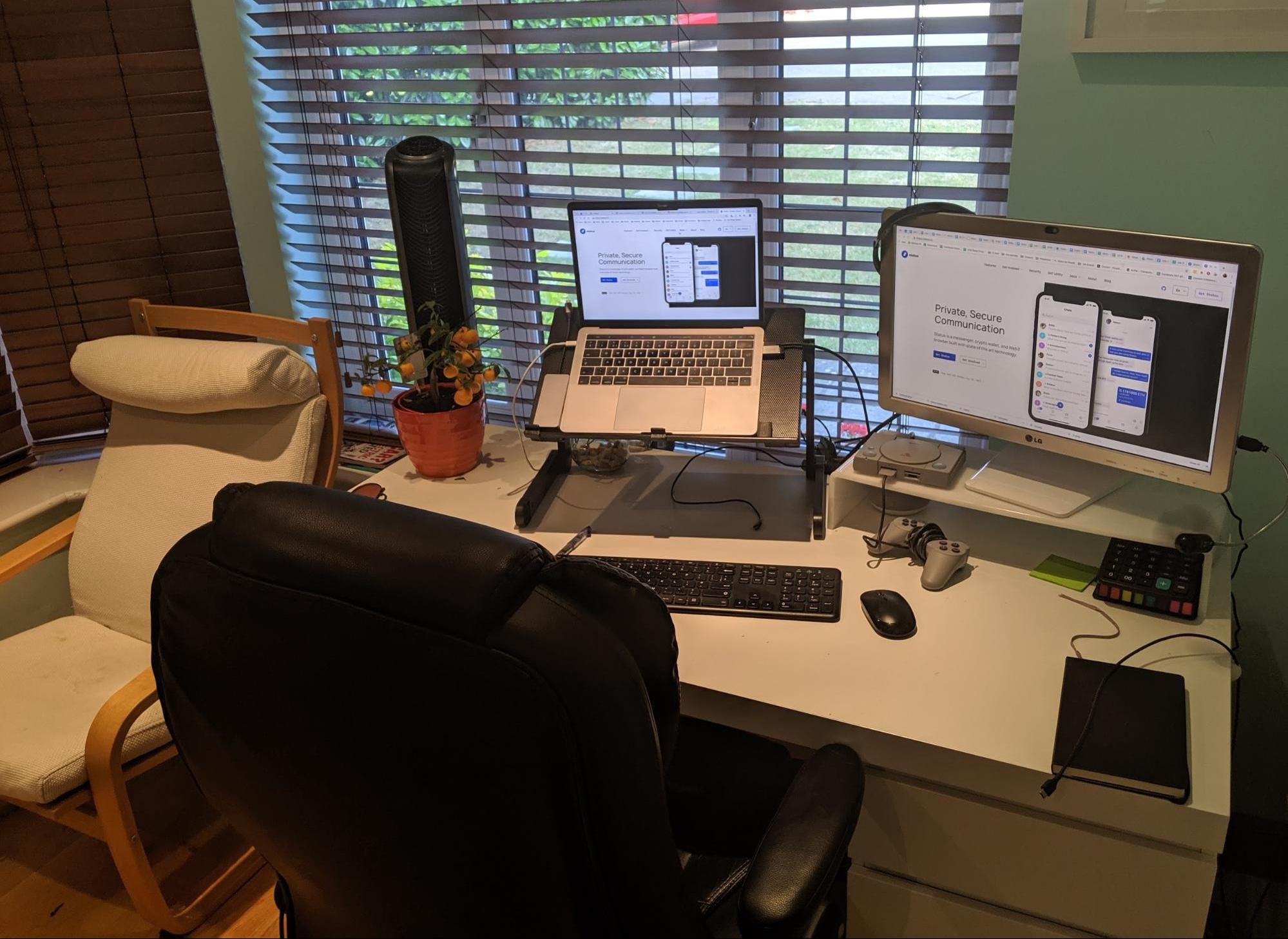
Tech stack
We use React, Go, Clojure and Nim. Clojure is one of the main programming languages that we use and Nim is the other one we’re doing a lot of research on. We have a team of 8-9 engineers focused on Nim (https://nim-lang.org/) and there are 311 public repositories on our GitHub. There might be a few private ones (person trackers) for people. The main ones are status-im/status-goand status-im/status-react.
How often do you ship to production?
It varies - in the first half of the year, we were pushing monthly updates to our Beta. Right now, we’re focused on shipping v1. At the moment, our desktop and mobile versions aren’t completely in sync: desktop is slightly behind. At some point towards the end of the year we hope to get to a mainstream launch, so we’ll come out of Beta.
Privacy in the recruitment process
Privacy and Security are our two guiding principles. We do not collect any information we don’t have to, and we certainly don’t want to collect any personal information unless it is required or necessary and the user knows about it. I apply this to recruiting, in our recruiting page (status.im/contribute/openpositions), where we have a detailed applicant privacy page. And we’re pretty aggressive on our applicant privacy, deleting all data after 365 days.
Hiring process
The application process varies by role, but in general, it adheres to the following format:
- We collect applications.
- Applications ask a few questions.
- They tell us what exactly they’re interested in. We’re looking from a very early stage for people that are passionate about what we’re doing and why we’re doing it.
- Similarly, we ask them to tell us about their passion for blockchain and also cryptocurrencies. From the very first application, we want people that identify with the driving principles.
Where possible, we like to get work samples from people. For engineers, we may ask them to complete some bug bounties for us – paid, of course. If you’re a technical writer, we might ask you do some (paid) technical writing. We feel this is a better way to get to know how you work and the quality of your code.
If work samples aren’t viable, then we conduct more traditional interviews to get to know candidates.
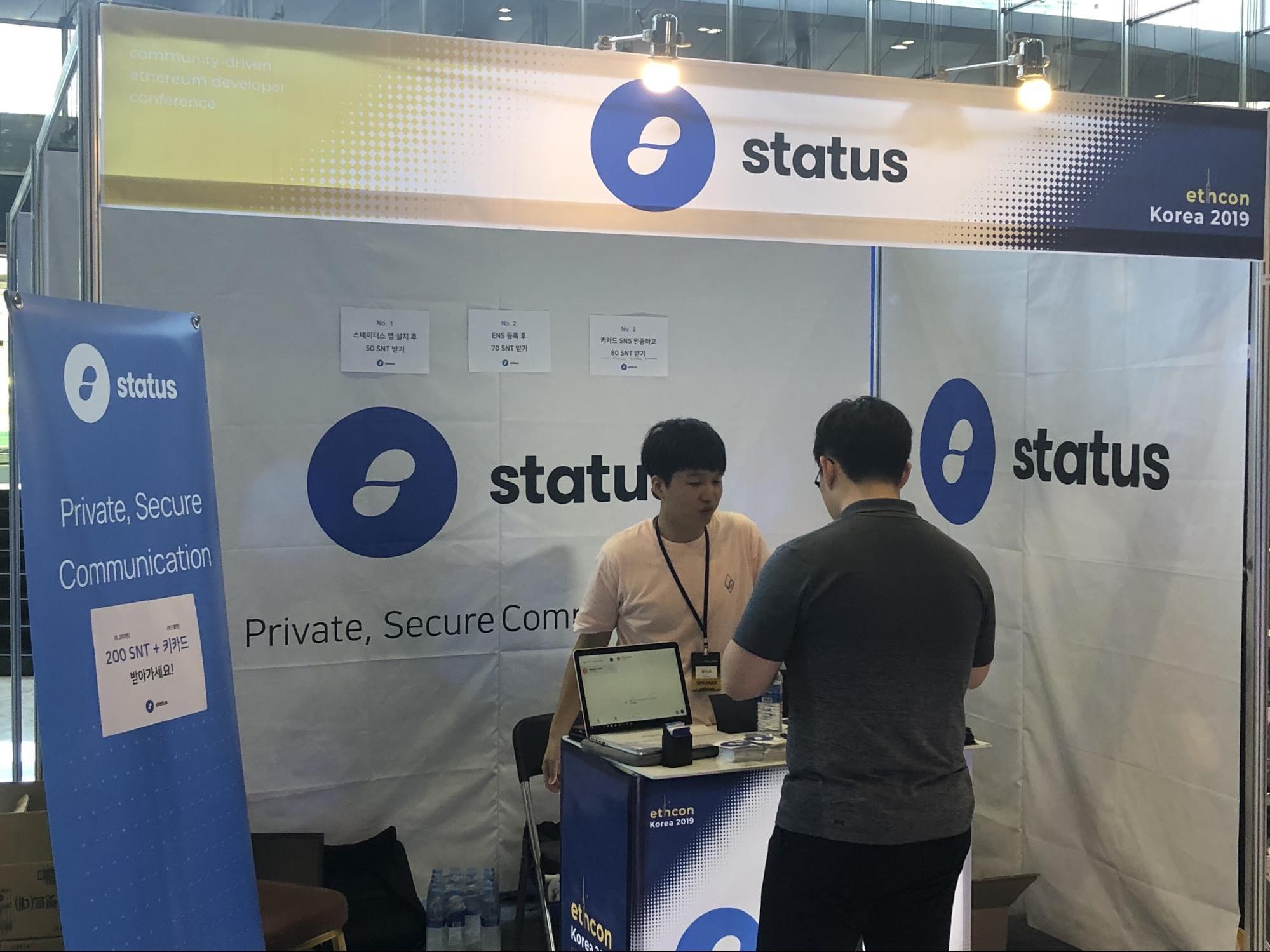
When someone is working on a bounty, do they communicate via GitHub? Do they join one of the Status chat groups?
Depending on the issue, we’ll send them a Status channel and tell them to go to the channel to obtain more context, or learn more about the problem they’re trying to solve. They’d also have some communication through GitHub. What we try to avoid is the traditional interview process. We are less interested in how a person “performs” in an interview and more interested in how they work.
Employee onboarding
At this stage, we have a pretty good onboarding process. A member of the People Operations team builds a plan for them, makes sure they have the username they want, access to the relevant information etc. Everyone’s also assigned a mentor, with whom they have calls.
Performance reviews
We do initial probation and trial periods once someone joins us. After three months, we sit down with everyone and talk through how they are finding things. It’s typically a lightweight assessment of whether a person’s doing well, where they could stand to learn or develop and how they are fitting with the team. We prefer to avoid the soulless “big company performance review cycle” that everyone loathes.
SNT Rewards
Our reward system, Status Kudos, is a dApp that rewards every opted-in contributor 500 SNTs (our network token) every week. You can then allocate SNTs to colleagues for a job well done. At the end of each week, so long as you have allocated all of your tokens, you can cash out and collect them yourself. We’ve been doing this for a few months and it’s going great.
Promotions and internal mobility
We don’t have a formal promotion process. And we don’t really have levels. But because everyone likes to get on, we make people fair offers when they join us. When we’re hiring for a role, we look at market rates to determine reasonable and rewarding salaries. We don’t have any formal salary review processes but we deal with employee demands as and when they arise.
Salaries in crypto
We are happy to pay in SNT, Dai or ETH. We’re also happy to pay in fiat. We don’t pay in Bitcoin currently. Once you join, you can tell us how you’d like to be paid. You can have your salary in 100% in fiat, or 100% Dai or ETH. Or you can tell us what ratios you prefer (ratios can be changed on a monthly basis). It’s the same with expenses – you can get reimbursed in fiat or crypto.
Internal hackathons – “Build Weeks”
It sounds like Status has a Facebook analogy of “internal hackathons” or “20% rule” of Google, but it’s an entire WEEK!
When you focus on one thing before a product launch, things can be stressful. So we wanted people to have some fun. We also recognize when you’re a start up, everyone focuses on the core mission; but there’s always a million other things that would be cool to devote time to. We like to provide a space for people to deploy their creativity.We ran a hackathon in April and may run another depending on demand.
Company retreats
We’ve visited some cool places so far, including Bangkok and Prague. Last year in Prague we did three events in one. We held a hackathon with 300 attendees, the same week as DevCon. We also had a Status team get-together with just the group in a room, discussing plans and strategy. This year we’re headed to Istanbul. Each team has a budget, and within that budget, they have some money allocated to do team travel and team get togethers. The teams are free to go wherever they want to go.
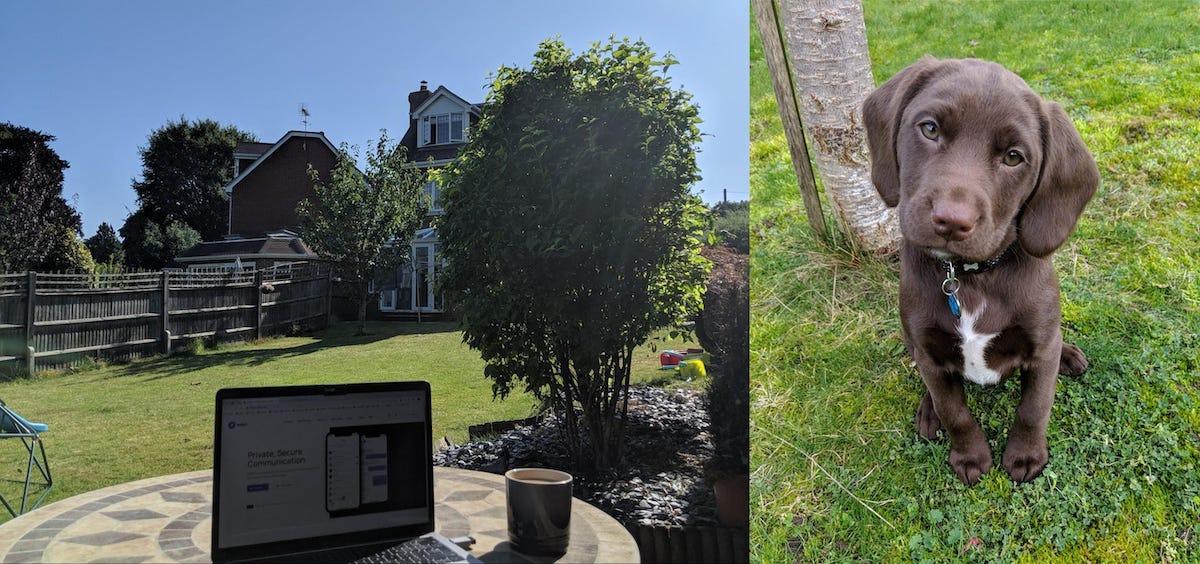
Vacation policy
We encourage people to take whatever time off they need – a suggested minimum of 25 days a year. However, it’s not mandatory. In general, people are free to take whatever days they want and for however long they want. Providing we’re getting the core work done.
What roles we are hiring for right now?
We just hired a product designer and a developer advocate. In the next few months, we have plans to add to our marketing and communications teams - we’ll be hiring Technical Copywriters and Marketing Managers. In general, we’re looking for people with a deep passion in blockchain technology and people aligned with our principles.
